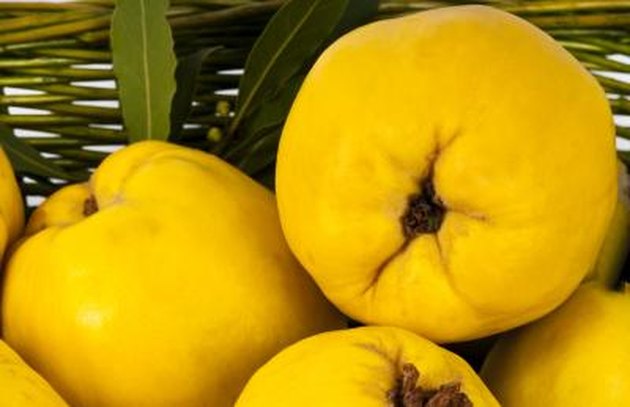Quince is an ancient fruit that has been cultivated for thousands of years. But when is quince ripe and ready for harvesting from the tree? Since quince doesn’t ripen well on the branch, identifying the optimal time for picking requires some knowledge.
Overview of Quince
Quince (Cydonia oblonga) is a small, deciduous tree that produces yellow, aromatic fruit. It is a cousin to apples and pears within the Rosaceae family.
Quince trees are cold hardy tolerating temperatures as low as -25°F (-32°C) once established. They grow well in USDA zones 5-9.
The fruits are large and irregularly shaped, resembling a cross between an apple and pear. When ripe, they turn bright golden yellow.
When Does Quince Fruit Ripen?
Quince fruit has a tricky ripening behavior. The fruits do not ripen well if left on the tree. Most cultivars only reach maturity after being picked.
Fully ripe quince fruit is soft, juicy, and sweet with a strong fruity aroma. But fruit allowed to ripen on the tree often stays hard, dry, and astringent.
So identifying optimum ripeness for harvesting requires checking specific signs.
How to Tell When Quince is Ripe for Picking
Here are tips for identifying when quince fruit is ready for harvesting
-
Color change – Look for fruits transitioning from light green to golden yellow. Avoid darker green fruits.
-
Size – Fruits should be full sized, around 5-8 cm wide.
-
Days after flowering – Start checking fruit about 100 days after the tree finished flowering.
-
Gentle twist – Give fruits a slight lift and gentle twist. If the stem snaps off cleanly, it’s ready for picking.
-
Fruit drop – Ripe fruits will start dropping off the tree. Harvest any mature sized fruits still hanging.
-
Firmness – Ripe quince will have slight give when gently squeezed but still feel firm. Avoid mushy fruits.
-
Fragrance – Ripe quince gives off a sweet, perfumed aroma. Sniff fruits to detect ripeness.
Ideally harvest quince fruits during dry weather before a hard frost. Use care when handling them as they bruise easily.
How to Ripen Picked Quince
After harvesting, additional ripening is required to reach full quality. Here’s how
-
Place quince fruits in a single layer in a dark, dry, cool area around 50-60°F (10-16°C).
-
Turn the fruits every 1-2 days to prevent mold and rotting.
-
Ripening can take 2 weeks up to 2 months depending on maturity when picked.
-
Check ripeness periodically by cutting a quince in half and sampling the flesh. It should turn from white to red and become juicy and sweet when ready.
-
Once ripe, use right away. Fully ripe quince last only 1-2 weeks before becoming mushy.
Storing Ripe Quince
For short term storage of up to 2 weeks:
- Refrigerate ripe quince wrapped in paper towels separately from other produce.
For longer storage up to 2-3 months:
- Preserve ripe quince through canning, freezing, or dehydrating. Pureed quince can also be frozen.
Proper identification of ripeness results in the best flavored quince for enjoyment. Now that you know what to look for, you can harvest perfect fruit from your quince tree.
Quince harvest advice for optimal ripeness
FAQ
When should quinces be picked?
Are quinces soft when ripe?
What does a ripe quince fruit look like?
- A Complete Guide to Caring for Yuki Cherry Blossom Shrub - January 23, 2025
- Identifying Red Hot Poker Seeds: What to Look For When Harvesting Torch Lily Pods - January 23, 2025
- A Complete Guide to Harvesting Evening Primrose Seeds - January 23, 2025

